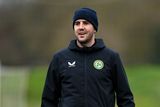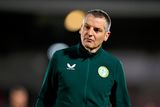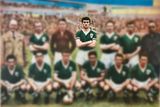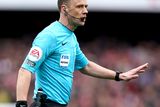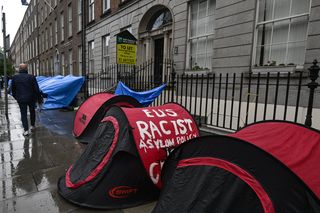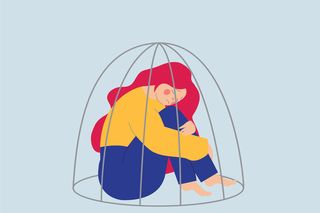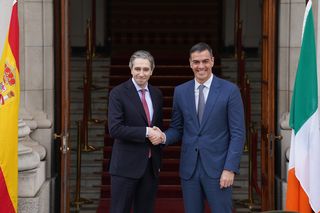A Polish history of pointless flings and lingering regret
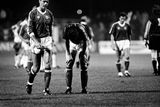
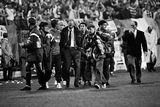
When Ireland's football history with Poland is discussed, a nod and a wink tends to accompany the stories.
Ray Treacy's famous quip that he won 43 Irish caps and 'probably about 40 of them came against Poland' summed up the extent to which a strong rapport between the respective associations led to a proliferation of friendlies in the '60s, '70s and '80s.
The actual total was 15, with eight on Polish territory, an oddity which has thrown up a fair share of colourful tales.
Eamon Dunphy's autobiography dealt with the darker side of those jaunts, implying that some FAI officials enjoyed life in an impoverished environment where the 'man with the hundred dollar bill is king.'
These trips, in which the match was often incidental, left their own legacy. In 1991, the relationship turned serious for the only two competitive meetings between the teams in the record books until now.
Jack Charlton's golden generation found that nothing came easy on the pitch. When it really mattered, the Irish were unable to get the job done and it cost them dearly.
The Euro 92 campaign is frequently cited as the one that got away, a blip that is either skipped past quickly or completely left out when the glory days are chronicled.
Charlton's side arguably played the best football of his tenure in the race to Sweden as part of a four-team group which also included England, Turkey and our Polish pals.
Squandered
Ireland took full points from the Turks and drew twice with England, games where good chances to score famous victories were squandered. Ultimately, it meant that the results against the Poles would decide the pool winner and sole qualifier.
Crucially, England beat them at Wembley whereas Charlton's charges huffed and puffed in a scoreless draw at Lansdowne before letting a two-goal lead slip in the dying stages of a frenetic 3-3 draw in Poznan that was out of character with the era.
Therefore, a point for Taylor's men in their final game would be enough and Gary Lineker's late equaliser did the trick, a devastating blow for the Irish dressing-room in Turkey which was waiting on good news.
Ray Houghton, who missed both away dates that autumn through injury, remembers his frustration as a TV viewer when an inferior English unit scraped through.
"We'd played them off the park in Wembley," he sighs, reflecting on a match where he missed a late sitter, a rare aberration that led to public admonishment from Charlton in the bar afterwards.
"We were always labelled as long ball team, even after Wembley, but we were a very good team," says the Glaswegian. "We were a confident group, focused and had real belief as we were all doing well at our clubs."
Ireland went unbeaten in 1991, but it was the draws that killed them. Similar to what's coming down the tracks this week, Poland's arrival in Dublin was sold as a fixture where anything less than victory would be a disaster.
The stalemate deflated the mood, with the Irish Independent headline 'What A Lansdowner' summing it up.
Still, when October came around, a win in the return clash would have put pressure on England, although Charlton bafflingly insisted that a draw was preferable as it would give their hosts an outside chance and an incentive to turn over Taylor's men on the last day.
Two years after the fall of the communist leadership, Poland was finding its feet as an independent entity. The Boys In Green were an established business in comparison. What's striking in the TV footage is that the advertising hoardings around the Stadion Lecha were dominated by Irish companies - a familiar sight in the Ole Ole haze.
AIB, Bus Eireann and Opel branding were visible as Packie Bonner and Kevin Moran got their wires crossed to allow Jan Urban to sneak in for the game's sixth goal. The chaotic thriller was a landmark encounter for another reason. It marked Roy Keane's competitive debut; his maiden call came a week after the 'Lansdowner'.
Charlton changed to what was described as a 'revolutionary' 4-5-1 to accommodate him, placing the Corkman next to Andy Townsend and Paul McGrath with Tony Cascarino as lone ranger. The decision was panned by Dunphy, Charlton's nemesis, who felt the runners ran out of steam.
"We paid a heavy price for the inclusion of Roy Keane at the expense of John Aldridge," wrote Dunphy, clearly an advocate of 4-4-2 at the time. "He had a poor game and contributed very little in the decisive midfield struggle that preceded the Poles final match-saving flourish."
Twenty-four years on we again find ourselves asking if Keane is suited to his present role, and if 4-5-1 is the answer - further evidence that Irish football is merely the same storylines spinning around in a cycle.
In an ideal world, this week will take us in another direction. Strangely enough, the Euro 2012 party has ensured that a sizeable rump of another generation will associate Poland with the good life rather than sporting achievement.
Unless, of course, a less celebrated Irish crop step up in 2015, succeed where their vaunted predecessors failed and make it third time lucky.





